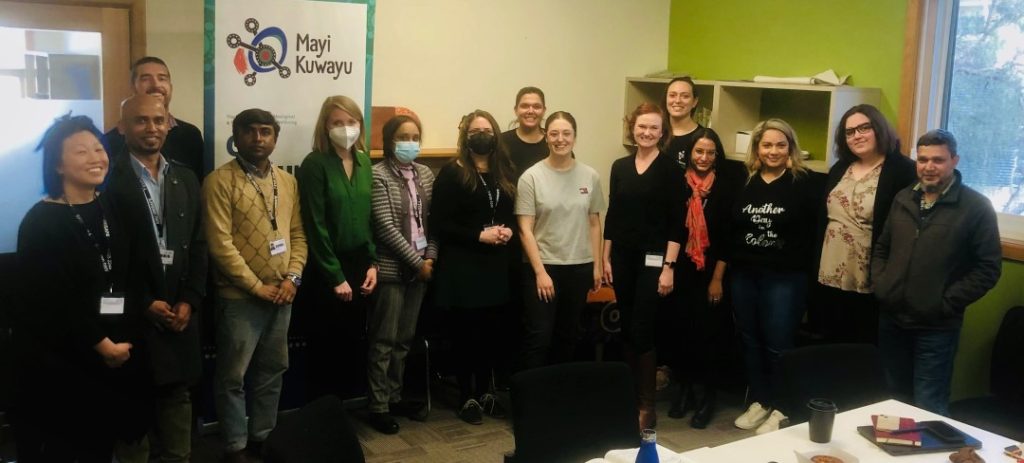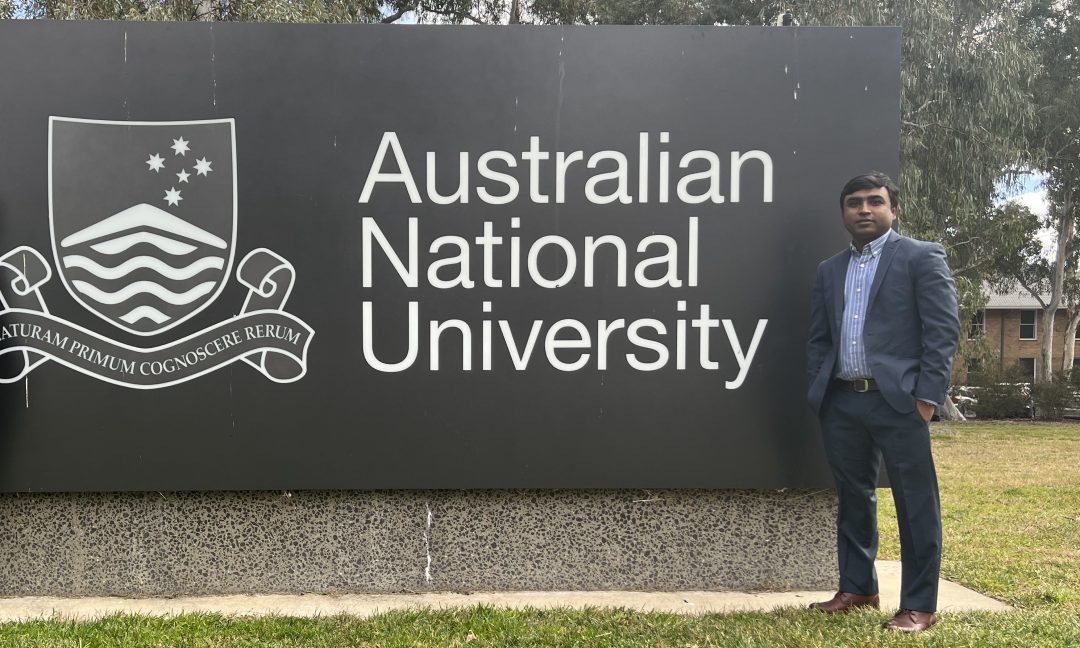University of Huddersfield PhD student Devendra Raj Singh hopes that research undertaken during a two-month trip to Australia will ultimately lead to improvements in maternity and mother and newborn care in his native Nepal.
Devendra spent two months at the Australian National University (ANU) in Canberra, supported by the Turing Scheme, where he explored parallels between the health issues faced by Australia’s Aboriginal and Torres Strait Islanders communities and people in his homeland.
His PhD research aims specifically to co-design an initiative to improve the delivery and uptake of free maternal and newborn health services in Nepal – but which could also be implemented in other disadvantaged communities around the world.
“I belong to the Madheshi community, which is a marginalised ethnic community, and, in terms of resources, it is one of the most disadvantaged in Nepal,” says Devendra. “Thousands of mothers and children are still dying because of the lack of availability and accessibility of a good level of health services to deliver their baby.
“Nearly, fifty per cent of women residing in rural settings still deliver at home in absence of health workers, so I am trying to gain insights into how we can improve the quality of services and bring those women to the health centres.”
Invaluable insights into research methodologies
His PhD at Huddersfield is Devendra’s second stint of studying in the UK following a Master’s in health promotion and public health at Canterbury Christ Church University. Within a year of starting the course, he was one of the 12 Huddersfield research students chosen to receive Turing Scheme funding to carry out part of their research training at international universities.
While in Canberra, Devendra worked closely with academics at the National Centre for Epidemiology and Population Health at ANU, one of Australia’s highest-ranked universities, and he gained invaluable insights into the issues facing Australia’s indigenous peoples.
“My visit to ANU provided me with an excellent practical introduction to implementation research methodologies such as co-design, realist review, and policy analysis,” he said. “But it was my absolute privilege to learn about the historical past, culture, and challenges of Aboriginal and Torres Strait Islanders in Australia.
“I was involved in a realist review that focused on exploring implementation opportunities and challenges for health checks for Indigenous Australians living with chronic conditions.
“I was also part of a research team that conducted a literature review on endometrial cancer among the indigenous population in Australia as a part of a collaborative project between ANU and other Australian academic and non-academic institutions.
“It was my pleasure to also attend communication and research impact workshops, and doctoral student seminars which allowed me to learn about the research defence skills and the Australian Doctoral education programme. I’m privileged to have had opportunity to learn from many esteemed academics at ANU.”

While in Australia Devendra also travelled to universities in Melbourne, Sydney, and Queensland, working with researchers from around the world as well as coordinating meetings with colleagues back in the UK.
“I worked with colleagues from Bangladesh, Nepal, Indonesia and Australia to look at how health programmes work when applied in different places, and what would be needed to bring about good outcomes and interventions,” he said. “Sometimes one programme can fail in one context but works in another – why is that? Our different backgrounds certainly helped explore that.
Bringing together UK and Australian researchers
“I was overjoyed to bring together my supervisors from the University of Huddersfield and the Australian National University for a joint meeting to introduce, discuss and explore opportunities for future potential research collaborations.
“The most admirable part of my visit was meeting with people from diverse cultural backgrounds with different research skills, exposure to unique work cultures, and traveling across regional and urban parts of Australia.
“This allowed me to construct my knowledge around strength-based approaches and it also helped me to manage time while working across multiple time zones, which is an important skill in the collaborative research work in the modern world.
“This visit was a fantastic experience and a perfect fusion of research, learning exchange, collaborations, cultural immersion and enjoyment.”
Find out more about higher education funding opportunities with the Turing Scheme






